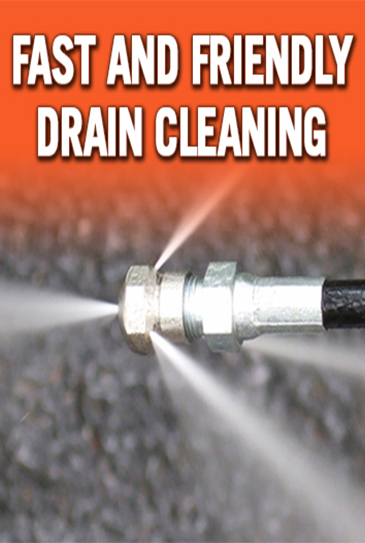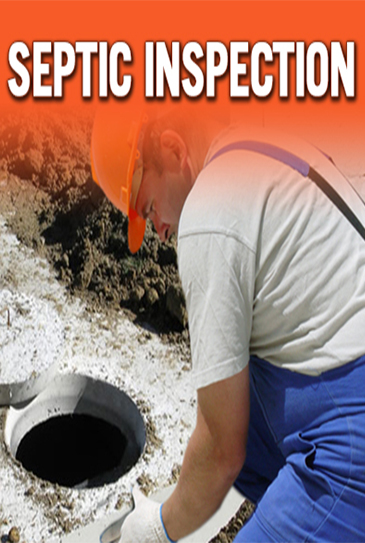
Purchasing a Property with a Septic System
Buying a property creates excitement and anticipation about many fun times ahead. However, this purchase also requires some thought and planning about how wastewater will be treated.
Before buying a property with a septic system, there are some things you need to consider:
- Where are the tank, maintenance hole, inspection pipes and soil treatment system located?
- What kind of system is it?
- What is the capacity?
- How old is the system?
- When was it pumped last?
- Are there any maintenance records?
- Has the system been inspected and what was the outcome?
It is recommended and most local governments require that you have the septic system inspected to determine if it is in compliance. Compliance does not guarantee long-term performance; it simply states that the system meets local and state requirements.
For more details about property transfers including septic systems, see the Minnesota Pollution Control Agency’s “Guide to Septic System Disclosure at Property Transfer” or “Compliance Inspections for Individual Sewage Treatment Systems.” Both are available online at: http://www.pca.state.mn.us/programs/ists/homeowners.html.
If you are adding on or remodeling your home, you may be required to have an inspection of your septic system. If adding a bedroom or garbage disposal, you may need to upgrade. If your septic system does not pass inspection, you will most likely need a new system. Local ordinances vary, but you will find out what you need to do when you apply for the appropriate permit. You can find out local information or ordinances from the county zoning or environmental services office.
If you are purchasing land with the intent to build, find out what kind of septic system would be appropriate for the particular lot. Also, make sure there is enough space for the home, well, septic system, deck, garage or other items. Be aware of factors such as small lot size, high water tables or soil types which may require special treatment and higher costs.
Septic Tank Service
A septic system service call should be performed every 3-5 years, in order to ensure the tank doesn’t overfill. Homes with garbage disposals and buildings with a lot of people may need to have septic service done every year. This is because the bottom of the tank fills with a layer of “sludge” over time, and if it isn’t removed, it can cause a nasty backup of your entire system. Over the years, the pipes may also build up residue, which needs to be removed. This is an easy task with hydro-jetting, or the use of high-powered water. When you have this maintenance performed on a regular basis, you increase the lifespan of your system and help maintain the value of your home. It’s a true investment.
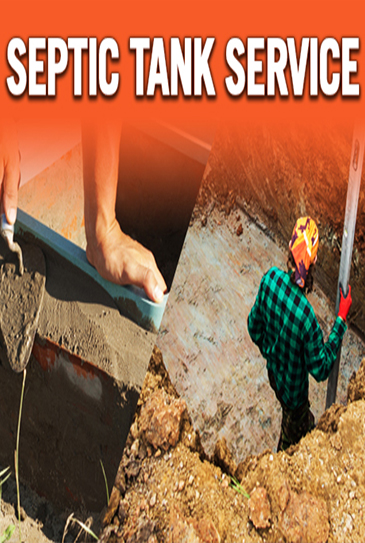

Septic Compliance Inspection
Many questions and concerns arise during the title transfer of a property, such as: how is the foundation, plumbing and electric? For homes that have a septic system, your big question should be, ‘is the septic system compliant?’ While compliance inspections are not required by law, they may be required by your local government unit. Learn more by reading information from the Minnesota Pollution Control Agency below, or contact Rotz with questions or to schedule your compliance inspection.
- What is a compliance inspection? – A compliance inspection is an evaluation, investigation, inspection or other such process conducted for the purpose of issuing a Certificate of Compliance (COC) or Notice of Non-compliance (NON).
- What is a COC and a NON? – The COC certifies a system is in compliance with state requirements at the time of the inspection. The COC does not guarantee future hydraulic performance, especially if the use changes or the flow increases over the amounts used by the current occupants. For an existing SSTS, the COC is valid for three years from the date of issuance. The NON gives notice a system fails to be in compliance with state requirements at the time of inspection. There are two types of failing designations, an Imminent Threat to Public Health or Safety and a Failing to Protect Ground water. The NON must also indicate the time frame for upgrade, repair, or replacement as set in the local ordinance.
- When are compliance inspections required? – While state law does not require an inspection at property transfer, many Local Government Units (LGUs) have ordinances requiring this. LGUs are Counties, Townships, and Cities. The LGU may also require a compliance inspection when complaints are received, as part of area surveys, or for lot spills. Compliance inspections can also be required upon request by the purchaser of a property, the mortgage lender, or real estate agent.
- Where do I find more information? – For additional information, please visit the Minnesota Pollution Control Agency Web site at: www.pca.state.mn.us/programs/ists/
Septic System Design & Compliance's
The cost of a septic system cannot be pinned down to a single price. There are a lot of variables that need to be accounted for and some cannot possibly be known without visiting the physical location of where the unit is intended to be placed. A general ballpark is around $10,000-12,000 for a traditional gravity-fed unit, but we’ve broken down the cost of septic a system based on the processes involved, so you can get a better idea of what to anticipate. If you need to work with hard figures, call us, as your total price may be lower or considerably higher than what’s outlined here.
Cost of Septic System Planning, Design, and Install – A properly designed system is an engineering feat. When everything is laid out properly, your unit will run efficiently and last for decades. The fees associated with the planning, design, and install will typically run from $1,500-4,000. This includes things like:
- Site Survey: General things about the land will be noted, such as how much vegetation will need to be removed, as well as how difficult accessing the property is. The slope of the land makes a difference as well. Typical units need a 15% grade or less. Anything more than this may require an alternative unit. The assessor will also have to verify where the water table sits, to determine if a standard leach field is appropriate.
- Perc Test: The percolation test determines whether the soil absorbs water at a good rate. If it soaks in too fast or too slow, a leach field may not be appropriate. A mound system may be an alternate used in planning, though if the soil is totally not an option, the fee for an on-site sanitization unit may push your total price to over $20,000.
- Written Plans: Armed with the information, written plans and the layout are created. This allows the company to provide you with an estimate and get approval from the county to begin work.
- Permits: Depending on where you’re located, multiple permits may be necessary.
Price of the Tank – Most homes today find a 1,000-gallon reservoir to be sufficient for their needs. Concrete tends to be the best choice and it may run $800-1,000 by itself. Fiberglass tends to be comparably priced, though it’s generally only used when the site conditions make hauling a cement reservoir difficult. Plastic is a final option. It’s not as durable, but it may shave a couple hundred dollars off the price. Steel reservoirs, though once acceptable, are illegal in many places and rust quickly, so they tend to not be a viable option. Because you may need a larger or smaller reservoir, your costs may be different.
Price of the Leach Field – The leach field has the job of discharging the water/ effluent into the soil where it finishes treatment. The costs associated with the leach field generally account for half of the overall expenses because there is so much involved.
Excavation: Trenches must be dug to allow for all the lines to be placed. These are generally 8-12 inches wide and 2-3 feet deep.
Pipes: Soil conditions determine how large the leach field needs to be. As a starting point, approximately 4,500 square feet will be needed, but some may need as much as 9,000 square feet or more. For every 100 feet of pipe, $65-80 should be set aside.
Gravel/ Rocks: The trenches are filled in with gravel or rocks to help the effluent distribute evenly. Depending on how it is sourced and how far it has to travel to get to you, it will run $15-30 per ton.
Additional Costs – There may be some additional costs as well, such as those associated with including risers in the design. These bring the level of the access ports up to ground level, so you don’t have to excavate (or pay to excavate) when the unit needs pumping or service later. They can run $100-200 or more, depending on the size and the materials used.
Call Rotz to Get the Cost of Septic System for You – Because there are so many variables, from the way the land is, to soil absorption, and how you use water, your expenses could be higher or lower than what’s outlined here. If you’d like an estimate drawn up, call us at (763) 441-2119 today.
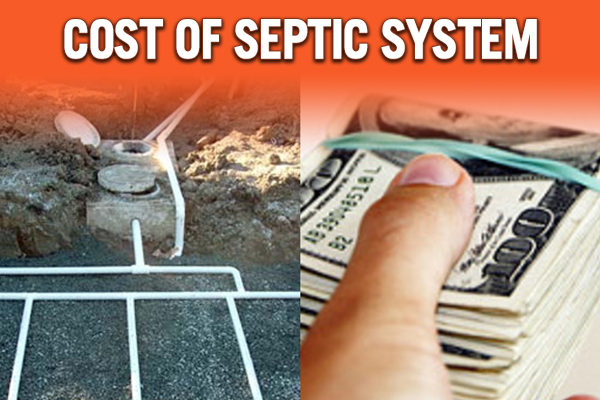
Septic Tank Pumping
Rotz service professionals that have the knowledge and expertise necessary to help keep your entire system running in top condition. In order to protect your investment and ensure that your system continues to operate properly for decades, we recommend that you have septic pumping done on a regular basis.
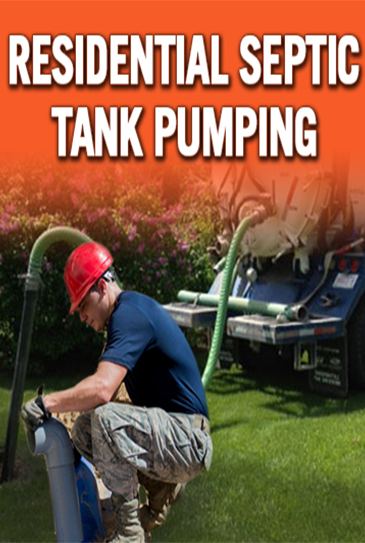
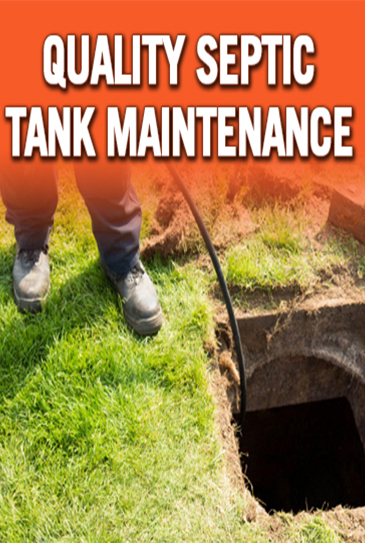
Septic Tank Maintenance
Following up with proper septic tank maintenance keeps your system running well, ensures it lasts as long as it should, and helps your family stay healthy. At Rotz, we are the best when it comes to septic maintenance, so you can relax knowing that your system is getting everything it needs.
Septic Maintenance: Pumping and Cleaning – Arguably, the most important thing you can do for your system is to have an experienced technician perform septic pumping and clean the tank every 3-5 years. If your house has a garbage disposal, water softener, or something else that may contribute to filling the tank quicker, you may have to have septic system maintenance performed annually.
What to Expect During a Septic Tank Maintenance Appointment – When a technician arrives, he’ll have to locate the tank and dig to gain access to the ports. The bottom of the tank builds up a layer of “sludge” over time. This is solid waste, which has to be removed in order for your system to function properly. If left unattended, the tank can overfill, causing the system to fail and sewage to back up into the household. The technician will pump the sludge out and take it to a facility so that it can be properly disposed of. Oftentimes, a thorough cleaning is given to the tank as part of the septic maintenance call. By hydro-jetting away the debris and residue the technician can perform a better inspection. He’ll examine all the parts inside the tank and make sure nothing is wearing out due to age or has broken. If everything checks out, you’re set for another 3-5 years.
DIY Septic Tank Maintenance – There are laws and guidelines that specifically relate to the disposal of waste, so it’s always a good idea to let a professional handle your regular septic system maintenance. Moreover, a highly-trained set of eyes will pick up any issues, so they don’t get the chance to become serious problems. However, there are certain things you can do to help ensure your system lasts for decades.
1) Know where your tank and leach field are located. You’ll need to protect the area. Make sure nobody drives over the top of it and don’t plant anything near it or the leach field. Grass is ok, but trees, shrubs, and other plants have invasive roots that can damage your system.
2) Minimize water consumption. The less you add to the tank, the less often it will need pumping. Pay special attention to leaky faucets, as these can overload a system in no time at all.
3) Make sure everyone in the household knows what not to flush. Things like baby wipes, tampons, and diapers may be a given, but chemicals can also damage the system and cause harm to the environment.
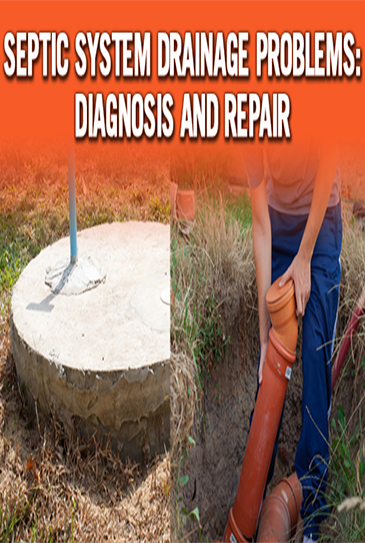
Septic System Drainage Problems: Diagnosis and Repair
Septic system drainage problems are fairly common, but it’s always a good idea to have them checked out by a professional. This is because all the parts of a system are designed to work together, so when one part begins to fail, the others will start to show signs of trouble, too. If you’ve got drainage problems, the issues could be related to the drain field, itself, but they could also be a symptom of something happening with the tank. The Rotz experts dispatched will perform a thorough examination of your system and get to the root of the problem, so you can focus on what matters most to you.
Understanding Your Septic System – Everything that goes through the drains in your home or commercial space exits the building at a single pipeline that leads to the tank. Inside the tank, the wastewater separates into three layers. The lighter things that float to the top are called “scum” and the heavier solids that sink to the bottom are referred to as “sludge.” In the center, you’ll have “effluent,” which is the liquid that can safely exit the tank.
Understanding Your Drainage System – There is a myriad of ways the effluent is handled, but the goal is to have it absorbed into the earth so that any remaining biological material or pathogens are naturally handled by bacteria in the soil. Most systems use a drain field or leach field to accomplish this, but there are other systems, such as seepage pits and mounds that work in a similar fashion. Leach fields vary in complexity, but they may consist of multiple narrow trenches or a large open space dug from the earth, in which the drainage pipes sit. The pipes are filled with lots of little holes, so that the water can trickle out slowly, and the empty space is filled in with things like sand and gravel, so the effluent can be distributed into the soil better.
Contact Septic Tank Pros Macon GA Right Away if You Notice Drainage Problems – Drainage problems tend to get worse at a rapid pace and can cause a lot of damage, as well as an unsanitary mess. If you notice any of the issues associated with a failing system, get in touch with Rotz fast. Contact us directly by calling (763) 441-2119.
Drain Cleaning
If you have any type of sewage system, it’s inevitable that you’ll require drain cleaning at some point in time. Caring for your septic system and tank properly by having it cleaned and pumped regularly can go a long way to preventing problems, but sometimes the unthinkable happens and the drain lines clog. The good news is, our expert partners know just how to handle this.
Understanding How Your Septic System Works – There are many components of a septic system and they all work together to handle wastewater. However, when any one part of the system fails, the whole system may fail to work. All the drain systems inside your home or business connect together at a single point where they exit the structure and the wastewater is led to the tank. At the tank, a “baffle” helps force the water down, so that it separates properly. Buoyant things, like oil, fat, grease, and toilet paper rise back up to the top, in a layer the industry refers to as “scum.” Heavier waste sinks to the bottom and forms a layer called “sludge.” The water that remains between the two is “effluent,” and it can safely leave the tank through a specially-designed outlet. Most homes have a leach field where the water drains to, but there are various systems that ensure the water flows freely into the earth where the soil’s natural bacteria handles any remaining organic material.
Common Reasons Drain Cleaning is Needed – Occasionally, someone will flush something that has no business being in a septic tank, such as a tampon or diaper. These kinds of things can clog lines instantly. Other times, buildup from a garbage disposal, grease, or other organic waste can make the pipes too narrow for something as simple as toilet paper to pass. One of the biggest concerns is when septic pumping isn’t done often enough. Most homes need it done every 3-5 years, but a home with a garbage disposal may need it done annually. When the layer of sludge isn’t removed from the bottom of the tank, it grows. Eventually, it overtakes the outlet and fills the lines of the leach field. In any of these cases, toilets generally start to run slower or a gurgling noise can be heard from the drains. If left untreated, the wastewater can back up through all the drains in the house, including sinks and showers.
Hydro-Jetting is the Ideal Way to Handle Drain Cleaning – Clogs that form instantly by a large object being flushed can sometimes be remedied by using a snake, but the other issues require a thorough drain cleaning to get the pipes and lines totally clear again. This is best achieved by hydro-jetting or the use of high-pressure water sprayers. They’re gentle on the system and safe for the environment, plus do a fantastic job of removing even the most stubborn buildup. In cases where the lines clog because septic pumping wasn’t done when it needed to be, pumping has to be performed before the drain cleaning can be done. In this case, the drain cleaning can be quite extensive.
Contact Rotz for All Your Drain Cleaning Needs Today – We understand that time is of the essence when your lines are sluggish or have stopped altogether. If you’ve noticed any of the symptoms associated with a septic system failure, it’s important to have a skilled professional come out and solve the problem right away. If you need faster service, call us right now at (763) 441-2119.
